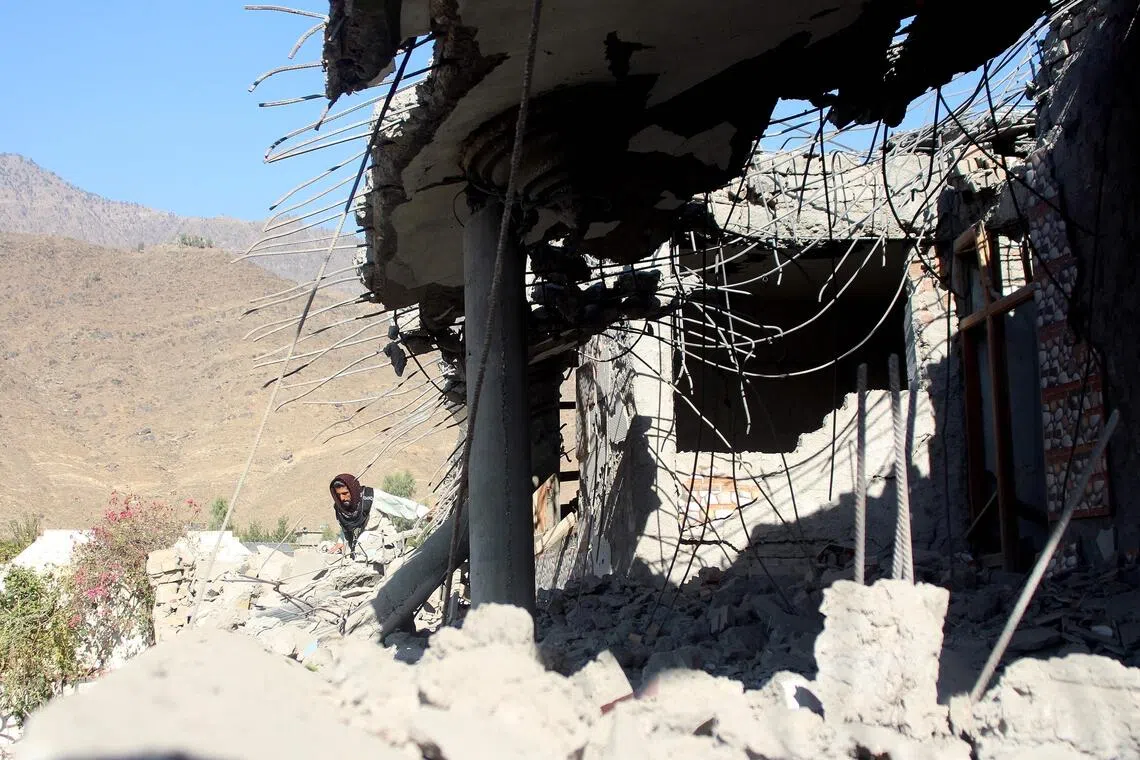Afghanistan's Taliban government has issued a stern promise to "respond appropriately" following alleged overnight border strikes attributed to Pakistan, which reportedly killed ten civilians, including nine children and one woman, in the eastern Khost province on November 25, 2025. This grave incident, which also saw four civilians wounded in Kunar and Paktika, has dramatically escalated an already volatile situation between the two neighbouring nations.
Afghan Condemnation and Vow of Retaliation
Spokesman Zabihullah Mujahid vehemently condemned the actions, stating that "Pakistani invading forces bombed the house of a local civilian resident." An AFP correspondent witnessed residents sifting through debris in Jige Mughalgai, near the Pakistan frontier, and preparing graves for victims, underscoring the immediate human cost. The raids were reportedly carried out by drones and aircraft. The Islamic Emirate reiterated its "legitimate right" to defend its airspace, territory, and people, signaling a potential retaliatory action and stating it "will respond appropriately at the right time."
Pakistan's Firm Denial
However, Pakistan has firmly denied any involvement in the alleged attacks. Military spokesman Ahmed Sharif Chaudhry, as reported by state broadcaster PTV, asserted that "Pakistan has not attacked Afghanistan," dismissing the interim Afghan government's claims as "baseless." He emphasized that Pakistan's military operations are always announced openly and properly, and they never target civilian populations.
Context: Recent Bombings and Cross-Border Accusations
These escalating tensions are set against a backdrop of recent deadly suicide bombings within Pakistan. A day prior to the alleged strikes, on November 24, a suicide attack in Peshawar targeting the headquarters of Pakistan’s paramilitary Federal Constabulary force killed three officers and wounded eleven. While no group immediately claimed responsibility, Pakistani state media suggested the attackers were Afghan nationals. President Asif Ali Zardari pointed fingers at "foreign-backed Fitna al-Khawarij" – Islamabad's term for Tehreek-e-Taliban Pakistan (TTP) militants, which Pakistan consistently accuses of operating from Afghan territory.
Furthermore, another suicide blast in Pakistan's capital, Islamabad, in November killed twelve people and was claimed by a faction of the Pakistan Taliban (which shares ideology with the Afghan Taliban). Pakistan's Information Minister, Attaullah Tarar, held a press conference on November 25, presenting a video confession from one of four suspects in custody and asserted "clear-cut evidence that TTA (Afghan Taliban) and TTP did it together, and the suicide bomber was a resident of Afghanistan," directly implicating Afghanistan's involvement and the use of its soil.
Deepening Diplomatic Rift and Economic Strain
Relations between Islamabad and Kabul have been severely strained since the Taliban's return to power in 2021. Deadly border clashes in October, which resulted in approximately 70 casualties on both sides, highlight the persistent friction. Despite a Qatari and Turkish-brokered ceasefire and subsequent rounds of talks in Doha and Istanbul, a lasting agreement remains elusive, primarily due to Pakistan's insistence that Kabul curb TTP fighters. Afghanistan, in turn, accuses Pakistan of harboring groups hostile to its interests and disrespecting its sovereignty.
The current geopolitical friction also has significant economic repercussions. The Pakistan-Afghanistan Joint Chamber of Commerce and Industry recently warned of thousands of containers stuck at the border, each incurring daily charges of US$150 to US$200, creating an "unbearable" economic burden for traders caught in the crossfire. The latest alleged strikes threaten to further destabilize the already fragile regional peace and economic ties, adding another layer of complexity to the contentious relationship.

